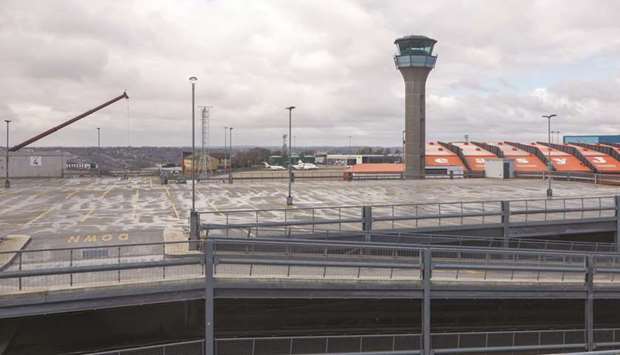Extraordinary circumstances call for extraordinary response, more so when the whole world is fighting a common enemy – the highly contagious coronavirus.
Many countries are under lock down as coronavirus has bitten the global economy, very badly. Understandably, the situation of the airline industry remains grim.
When borders are closed and people’s mobility is restricted by governments due to the fear of Covid-19 virus spread, obviously the airline business disappears.
Industry captains who have been working from a scenario of severe travel restrictions lasting for three months say global airlines may burn through $61bn of their cash reserves during the second quarter ending in June, while posting a quarterly net loss of $39bn.
On top of unavoidable costs, airlines everywhere are now faced with refunding ‘sold but unused’ tickets as a result of massive cancellations resulting from government-imposed restrictions on travel. The second quarter liability for these will be a colossal $35bn, according to IATA, the global trade body of airlines.
“Cash burn will be severe. We estimate airlines could be burning through $61bn of their cash balances in the second quarter,” points out IATA chief economist Brian Pearce.
So, what does the industry wants the governments to do now?
IATA chief Alexandre de Juniac says a “time buffer” can be provided to airlines immediately so that the industry can continue to function.
In view of the crisis, he says rules may be temporarily relaxed so that airlines can offer vouchers in place of cash refunds. IATA economists have calculated that globally, airlines have a $35bn liability for tickets sold, but which are unflown.
The massive restrictions that governments have imposed on movement mean that massive numbers of flights have been cancelled, creating a huge refund liability. “When 70% your business vanishes overnight, there is no amount of cost cutting that can adequately fill the gap. So it is good news when governments come to the table with relief measures,” points out de Juniac.
Certain governments have started to roll out rescue packages for the industry to prevent what looks like a catastrophic disruption to aviation.
The biggest one to be announced recently was the $2tn package in the United States that included over $50bn for airlines and their employees. Colombia, Singapore, Australia, China, Norway and New Zealand are also among the countries whose governments have taken specific relief measures.
And a few governments—Brazil, Canada, Columbia, Italy and the Netherlands—have also addressed a key weakness that has emerged in view of the pandemic. Others are reportedly considering some relief measures to the airline industry, post Covid-19. Industry expert Dean Donovan said, “Nevertheless, the industry will need an immense amount of capital to recover and many weaker airlines won’t make it as independents. “A smaller set of well-capitalised airlines makes sense for an industry with enormous exposure to external shocks, but it would be a mistake to assume the post-2020 industry will look the same as the one prior to the Covid-19 crisis,” he wrote in the Forbes magazine recently.
The one part of the industry that continues to operate is the cargo sector. And it is struggling to meet demand as discussed in these columns earlier. Passenger operations have been reduced so drastically that there is just not the capacity in the system to meet even the reduced levels of air cargo. And this includes vital medical shipments on which people’s lives depend.
An estimate shows that if the blanket travel curbs remain in force for three months, industry revenues will be cut by $252bn this year compared to 2019. IATA sees the industry burning through $61bn in cash in the second quarter — a precipitous fall for cash balances. Clearly, the dimension of this crisis is beyond anything that the industry has experienced in many decades.
But when the crisis-hit global economy crosses the bridge and the world recovers from the Covid-19 shock, it certainly requires a robust aviation industry to speed up recovery by connecting economies and peoples around the world.
In this context, some relief measures from governments can be seen as setting the stage to enable aviation to contribute to the recovery when people are ready to fly again.
* Pratap John is Business Editor at Gulf Times.

The air traffic control tower stands over an empty car park at London Luton Airport. Aviation industry captains who have been working from a scenario of severe travel restrictions lasting for three months say global airlines may burn through $61bn of their cash reserves during the second quarter ending in June, while posting a quarterly net loss of $39bn.

